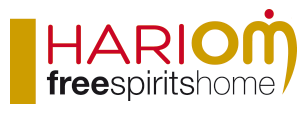The books and the journey
Almost never have I bought a book by chance that I did not like the editorial project or, at least, the cover image. Sometimes I was disappointed, but less than what statistics could confirm.
Meknes’ Medina, part of the poorer market. I'm looking for a book.
Any book, I tell myself, as long as it allows me to have something to read during the long journeys on public transport from one place to the other and in the evening, after walking all day in the African sun.
A vague sense of guilt for not having correctly calculated the amount of books necessary for the trip spoils the pleasant mood of the day. I must make up for it, and prepare myself for the task of finding readings in French or English in the Meknes souk.
Patricia, the Riad's maitresse, provided some directions: "Pass the Bab (door), turn left and go past the mattress vendors. A little further on you will find some bouquiniste ". As if, I think. Everything is vague in the medinas, but exactly for this reason, almost anything can happen. You can buy everything in the suq, but after some time the repetition reigns. The sense of orientation is very alert, but sometimes (euphemism: usually the norm here) things are not logical. And anything goes.
Instead, I find the bouquiniste, at least one. I stop by, eager to browse through the most unlikely things. "Wait, madame, I’ll remove the nylon". The seller tells me that the sun burns everything here, and pulls out a dusty black plastic sheet from his desk, that the bare soil. Under my eyes, a multicolored carpet of books.
I crouch down and, between text-books form the seventies and the great classics published in episodes for magazines and newspapers, my attention focuses almost immediately on two pocket books: Le pain nu by Mohamed Choukri and Le désorientés by Amin Malouf. Although I know the fame of the latter, as he is one of the acclaimed academics of France, of the first author, with the distinctive Maghreb name, I know nothing. However, as for some other readers I suppose, the cover is the calling card for a first obscure method of choice. Almost never have I bought a book by chance that I did not like the editorial project or, at least, the cover image. Sometimes I was disappointed, but less than what statistics could confirm. More-over, in these cases, the possibility remains to look at the book as a beautiful object. (While I find it sad when beautiful books are published with a terrible cover design! Every time I ask myself: how is it possible that the intelligence inherent in the book is not oozed even to the editorial choice).
I like the two book covers. Both synopses tell of subjects that tickle my curiosity; that it usually means: something that closely touches my story, a detail of what has led me to be what I am, but that has a different take from mine.
Le désorientés looks like a story of now: an immigrant - although from upper class background- who writes about exile and of returning home, relying on a great feeling, friendship. Le Pain Nu, is an autobiographical account of Morocco in the forties, of which on the back cover Tahar Ben Jalloun states: "A naked text. In the truth of experience, the simplicity of the first emotions "(my translation ndr).
I barter, and for 50 Dirham I take them both away with me (5 € is not a good deal, I realize, but bartering wears me off and I prefer to save my energy for other things). The two books are in my hands, because plastic bags are a luxury for the richest merchants. (Obviously, this reality produces a consequent entrepreneurial possibility: there are children who sell plastic bags, the same ones that before the era of recycling shoppers used in the supermarket of the West ...).
To be continued next tuesday...
> Photographic project: E. Genesio, D. Manassero.

